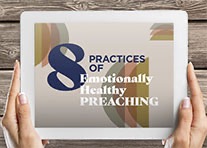Insights from Jean Vanier of L'Arche
Jean Vanier, founder of the L’Arche communities for people with severe mental and physical disabilities, recently offered an interview with Krista Tippett on her show, On Being. Vanier, one of those few hidden, great Christ-followers, is now 85 years old. The following are, in his own words, a few rich insights from that interview. I invite you to read them slowly and prayerfully. 1. The deepest desire for us all is to be appreciated, to be loved, and to be seen as someone of value. 2. Martin Luther King Jr. rightly said that we will continue to despise people until we have loved and accepted what is despicable in ourselves. 3. We need to love people, not because they are beautiful, but because they are human. 4. Those considered marginalized and disabled can restore balance to the world as to what is important, i.e. love and tenderness. 5. The goal of L’Arche is not to change. Read more.





